Vitamin B12 is one of the most controversial members of the family of "B-complex" vitamins. It is unusual in terms of its origin. While most vitamins are found in a wide variety of plants and animals, B12 is produced by certain plant and animal species and an excellent source of this vitamin are small organisms such as bacteria, yeast, fungi and algae.
Vitamin B12 is known by many names, including: kobrinamid, kobinamid, kobamid, cobalamin, hidroksobalamin, akuokobalamin, nitrotokobalamin and others. Each of these names contains a form of the word cobalt as mineral cobalt is contained in the base of vitamin B12.
Vitamin B12 is also unusual because it is dependent on a substance called the intrinsic factor to pave its way from the gastrointestinal tract to the rest of the body.
Basic functions of vitamin B12
- Formation of red blood cells. In their maturity, red blood cells need information from DNA molecules. Without the presence of B12, the DNA synthesis is incorrect and thus lacks the information necessary for the formation of red blood cells.
- Development of nerve cells. The material that covers nerves called myelin sheath has a failure when B12 is in insufficient quantities. Although B12 plays an indirect role in this process, it has been shown that it is effective in relieving pain and other symptoms of various diseases of the nervous system.
- Other roles of B12. Protein - food components necessary for the growth and repair of cells - depend on B12 for their correct movement through the body. Many of the key components of proteins called amino acids become unavailable for use in the absence of vitamin B12.
Deficiency of vitamin B12
Stomach problems may contribute to vitamin B12 deficiency in two ways. First, irritation and inflammation of the stomach can prevent stomach cells from functioning properly. When malfunctioning, cells may stop producing a substance needed to absorb vitamin B12, namely the intrinsic factor. The second is related to inadequate secretion of stomach acids.
The absence of acids, a condition called hipochloridricity may prevent the absorption of vitamin B12, as most of the vitamin B12 in our diet is linked to gastric acids and proteins needed to release vitamin B12 from these proteins.
The categories of drugs that can reduce supply to the body of vitamin B12 include antibiotics, anticancer drugs, anticonvulsants, anti-gout medications, medications for disease Parkinson, antipsychotics drugs, birth control pills, cholesterol-lowering drugs and substitutes for potassium.

Symptoms that are potentially associated with vitamin B12 deficiency include dandruff, nervousness, decrease blood clotting, leg cramps, slow reflexes, depression, redness, sore tongue, pallor, difficulty swallowing, fatigue, heart failure, heart palpitations, memory problems, menstrual problems, weak pulse, and others.
Overdose of vitamin B12
Excessive intake of vitamin B12 can lead to the occurrence of blood clots, diarrhea, skin rash and severe allergic reaction. If you have any of these symptoms, immediately consult your doctor.
Benefits of Vitamin B12
Vitamin B12 may help in the prevention and/or treatment of the following diseases: alcoholism, anemia, rheumatoid arthritis, bronchial asthma, atherosclerosis, cancer, Crohn's disease, dermatitis, fatigue, leukemia, lupus, multiple sclerosis, nerve degeneration and others.
Sources of Vitamin B12
Because vitamin B12 can not be produced by any animal or plant, its content in plants and animals depends on their ability to store this vitamin and its relationship with microorganisms (such as bacteria in the soil). Due to their greater ability to store vitamin B12, animals contain more of the vitamin than plants. Excellent sources of vitamin B12 are limited to animal foods. These foods include turtle and beef liver.
Good sources of vitamin B12 are venison, shrimp, scallops, salmon and beef. Aquatic plants (like kelp), blue-green algae, yeasts (such as brewer's yeast) and fermented plant foods (such as meat or tofu) are the most commonly consumed vegetable sources of vitamin B12.
As a dietary supplement, B12 can be found most often in the form of cyanocobalamin.
Obtained from animal foods, B12 is relatively well maintained in most ways of cooking food. The ability of strict vegetarian diets to provide adequate amounts of vitamin B12 remains controversial, despite increasing evidence of vegetarianism and its nutritional adequacy.

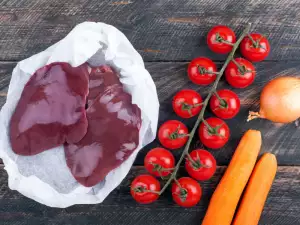
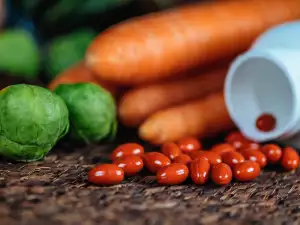
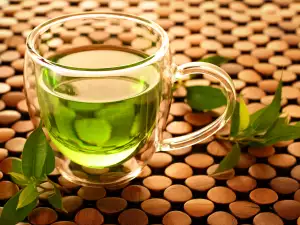
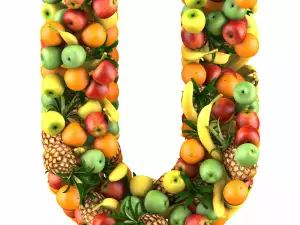
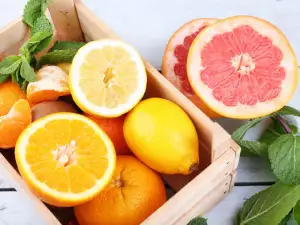

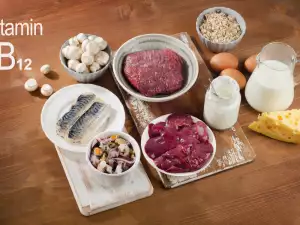
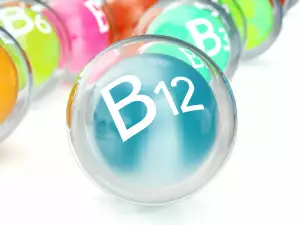



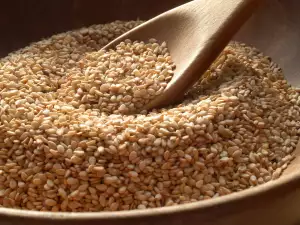






Comments